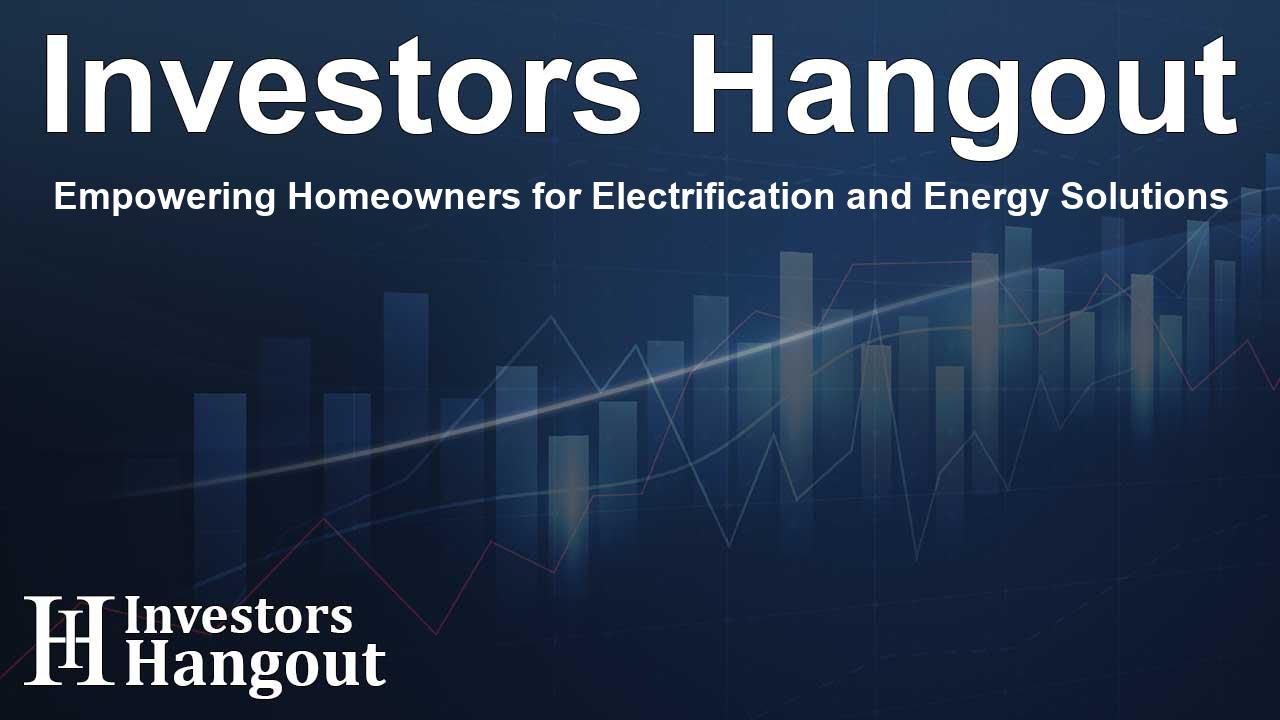Empowering Homeowners for Electrification and Energy Solutions

The Growing Trend of Electrification Among Homeowners
Recent studies reveal a significant shift in U.S. homeowners' perceptions regarding electrification. With energy-related emissions having a substantial impact on climate change, the transition from fossil fuels to clean electric solutions presents a unique opportunity for consumers to make impactful changes. As homeowners increasingly consider the switch to electric appliances, understanding the motivations behind this trend is crucial.
Understanding Homeowner Motivations
Through significant research, experts have discovered that a considerable number of homeowners are open to the concept of electrification. Many are contemplating replacing their traditional gas appliances with energy-efficient electric options. It's evident that while price is the leading concern for consumers, energy efficiency is also at the forefront of their decision-making process.
Cost as a Primary Consideration
When weighing the decision to switch to electric appliances, homeowners highlight cost as their top priority. The potential savings on energy bills and the overall efficiency of electric options play a crucial role in this consideration. Alongside affordability, homeowners are also focused on how these appliances can enhance their living environment, proving that both economic and qualitative factors influence their choices.
Barriers to Electrification
Despite the readiness to transition, several barriers hinder homeowners from making this switch. Concerns about compatibility with existing setups and the perception that electric appliances may perform worse than their gas counterparts pose significant challenges. Furthermore, skepticism surrounding power grid reliability and the perseverance of governmental support through incentives reflects a hesitance to fully embrace this movement.
The Role of Environmental Awareness
While homeowners acknowledge the long-term environmental benefits associated with energy-efficient practices, such concerns have not emerged as powerful motivational factors for many. Homeowners exhibit an understanding of how their choices impact future generations, yet immediate economic benefits resonate more strongly than environmental aspirations.
Effective Messaging Strategies
To effectively encourage homeowners towards electrification, it is vital to tailor messaging that emphasizes the monetary savings associated with electric appliances. Communicators should highlight specific returns on investment and how updating appliances can improve both comfort and convenience within the home.
Who Influences Homeowners?
Research indicates that homeowners are more likely to respond positively to messages advocating the switch to electric appliances from credible sources such as utility companies, family, friends, and industry professionals. Ensuring these influencers are equipped with accurate information will be essential for any electrification campaign.
Glimpse Into Future Initiatives
According to experts working in organizations devoted to these initiatives, educating homeowners about the electrification process is paramount. Stakeholders believe this will help mitigate biases and enhance public confidence in transitioning toward a more sustainable energy future.
Community Engagement and Support
Efforts by organizations dedicated to electrification aim to provide homeowners with the necessary resources to navigate the transition effectively. By developing meaningful campaigns and fostering partnerships, they hope to inspire a movement toward cleaner energy solutions.
Conclusion: A Borrowed Future
As the electrification movement gains momentum, it's clear that homeowners are ready for change, provided they receive the right information and support. By enhancing awareness about the benefits of electrification and addressing their concerns, stakeholders can champion a transition that not only improves individual lives but also contributes to a more sustainable future for us all.
Frequently Asked Questions
What is electrification?
Electrification refers to the process of replacing gas appliances with electric alternatives to reduce carbon emissions and improve energy efficiency.
Why are homeowners considering electrification?
Homeowners are motivated by potential cost savings, energy efficiency, and the desire for a more sustainable living environment.
What are the main barriers to switching to electric?
Cost, compatibility, perceived performance issues, and skepticism about grid reliability are common barriers homeowners face.
How can effective communication influence homeowners?
Utilizing credible influencers and emphasizing financial benefits can significantly sway homeowners toward electrification.
What steps are being taken to support homeowners in this transition?
Research organizations are developing educational materials, outreach campaigns, and resources to assist homeowners in making informed decisions about electrification.
About Investors Hangout
Investors Hangout is a leading online stock forum for financial discussion and learning, offering a wide range of free tools and resources. It draws in traders of all levels, who exchange market knowledge, investigate trading tactics, and keep an eye on industry developments in real time. Featuring financial articles, stock message boards, quotes, charts, company profiles, and live news updates. Through cooperative learning and a wealth of informational resources, it helps users from novices creating their first portfolios to experts honing their techniques. Join Investors Hangout today: https://investorshangout.com/
Disclaimer: The content of this article is solely for general informational purposes only; it does not represent legal, financial, or investment advice. Investors Hangout does not offer financial advice; the author is not a licensed financial advisor. Consult a qualified advisor before making any financial or investment decisions based on this article. The author's interpretation of publicly available data shapes the opinions presented here; as a result, they should not be taken as advice to purchase, sell, or hold any securities mentioned or any other investments. The author does not guarantee the accuracy, completeness, or timeliness of any material, providing it "as is." Information and market conditions may change; past performance is not indicative of future outcomes. If any of the material offered here is inaccurate, please contact us for corrections.